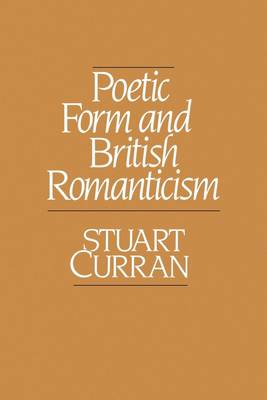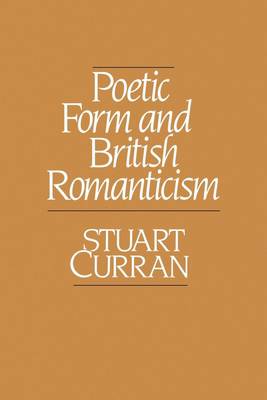
- Afhalen na 1 uur in een winkel met voorraad
- Gratis thuislevering in België vanaf € 30
- Ruim aanbod met 7 miljoen producten
- Afhalen na 1 uur in een winkel met voorraad
- Gratis thuislevering in België vanaf € 30
- Ruim aanbod met 7 miljoen producten
Zoeken
Omschrijving
Across Europe, and particularly in Great Britain, the Romantic age coincided with a large-scale revival of lost literatures and the first attempts to create a coherent history of Western literature. Calling into question that history, Stuart Curran demonstrates that the Romantic poets, far from being indifferent or hostile to popular forms of literature were actually obsessed with them as repositories of literary conventions and conveyors of implicit ideological value. Whether in their proccupation with fixed forms, which resulted in the incomparable artistry of Romantic odes, or in their rethinking of major genres like the pastoral, the epic, and the romance, the Romantic poets transformed every element they touched to suit their own democratic, secular and skeptical ethos--a world view recognizably modern in its dimensions.
Specificaties
Betrokkenen
- Auteur(s):
- Uitgeverij:
Inhoud
- Aantal bladzijden:
- 288
- Taal:
- Engels
Eigenschappen
- Productcode (EAN):
- 9780195060720
- Verschijningsdatum:
- 22/02/1990
- Uitvoering:
- Paperback
- Formaat:
- Trade paperback (VS)
- Afmetingen:
- 155 mm x 229 mm
- Gewicht:
- 426 g

Alleen bij Standaard Boekhandel
+ 332 punten op je klantenkaart van Standaard Boekhandel
Beoordelingen
We publiceren alleen reviews die voldoen aan de voorwaarden voor reviews. Bekijk onze voorwaarden voor reviews.











